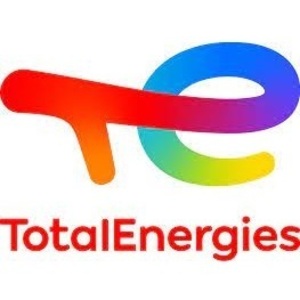TotalEnergies, Safran partner to decarbonize aviation industry

September 28, 2021
BY TotalEnergies
TotalEnergies and Safran have signed a strategic partnership agreement to jointly develop technical and commercial solutions for the decarbonization of the aviation industry.
In line with the ambition of both companies to reach net zero CO2 emissions by 2050, this major partnership aims to accelerate the reduction of the CO2 emissions of the aviation industry. Sustainable aviation fuel (SAF) plays a key role in this approach.
The collaboration will leverage Safran and TotalEnergies’ respective areas of excellence and expertise for the development and deployment of sustainable aviation fuels and develop an informed understanding of the overall value chain and use cases, while integrating the objectives of sustainable development altogether.
In the short term, the partnership aims to make current engines compatible with fuel containing up to 100 percent SAF. Longer term, it will then work to optimize engine/fuel energy efficiency and environmental performance.
This collaboration may extend to other fields, such as adapting fuel systems to SAF or developing new-generation battery systems for electric motors.
Advertisement
Advertisement
The agreement focuses on three key areas:
•Research, technology and innovation, with the development of technological bricks validated through ground tests of propulsion systems and demonstrator flight tests of engines.
•Supply of sustainable aviation fuels produced in France by TotalEnergies to decarbonize Safran’s airplane and helicopter engine tests in France.
•Dialogue and promotion, through initiatives to raise awareness among public and private players in France, Europe and worldwide.
Patrick Pouyanné, chairman and CEO of TotalEnergies, declared: “We are pleased to join forces with Safran to help meet the challenge of decarbonizing the aviation industry together. This strategic alliance will contribute to the emergence of a French value chain for sustainable aviation fuel and electric aircraft. TotalEnergies is resolutely committed to reducing its own carbon emissions and to supporting its customers in their reduction efforts by offering innovative, tailored solutions. We believe that cooperation among all aviation industry players is needed to achieve the objectives of the energy transition to reach carbon neutrality.”
Advertisement
Advertisement
Olivier Andriès, CEO of Safran, said: “I welcome this agreement, which is fully in line with Safran’s strategic priority to decarbonize aviation. Our ambition is to develop breakthrough technologies for ultra-efficient engines that are 20 percent more fuel-efficient than the current LEAP engine and 100 percent compatible with sustainable fuels. This cooperation with TotalEnergies demonstrates our commitment to limiting our environmental footprint, contributing to carbon neutrality in the aviation industry, and preserving a mode of transportation that delivers essential economic, social and cultural benefits.”
Sustainable aviation fuels are an immediately available solution for significantly reducing CO2 emissions from air transportation, as they can be used in blends of up to 50 percent as of today without modifying existing supply chain infrastructure, aircraft or engines. Safran is a key player in projects that will allow the use of 100 percent SAF in existing aircraft.
French legislation calls for aircraft to use at least 1 percent SAF by 2022 for all flights originating in France, while the European Commission calls for a ramp up to 2 percent by 2025 and 5 percent by 2030 as part of the European Green Deal.
Related Stories
Broco Energy on July 17 announced a new partnership with the Massachusetts Port Authority (Massport) to deliver and transition Massport's fuel tanks to renewable diesel across its various facilities.
Shell Aviation, Accenture, and Amex GBT on July 10 announced Avelia is in the process of evolving to an industry solution with independent data hosting and a multi-supplier model helping users access the GHG benefits of SAF.
The U.S EPA on July 17 released data showing more than 1.9 billion RINs were generated under the RFS during June, down 11% when compared to the same month of last year. Total RIN generation for the first half of 2025 reached 11.17 billion.
The U.S. EPA on July 17 published updated small refinery exemption (SRE) data, reporting that six new SRE petitions have been filed under the RFS during the past month. A total of 195 SRE petitions are now pending.
European biodiesel producer Greenergy on July 10 confirmed plans to shut down its biodiesel plant in Immingham, Lincolnshire, U.K. The company temporarily suspended operations at the facility earlier this year.
Upcoming Events










